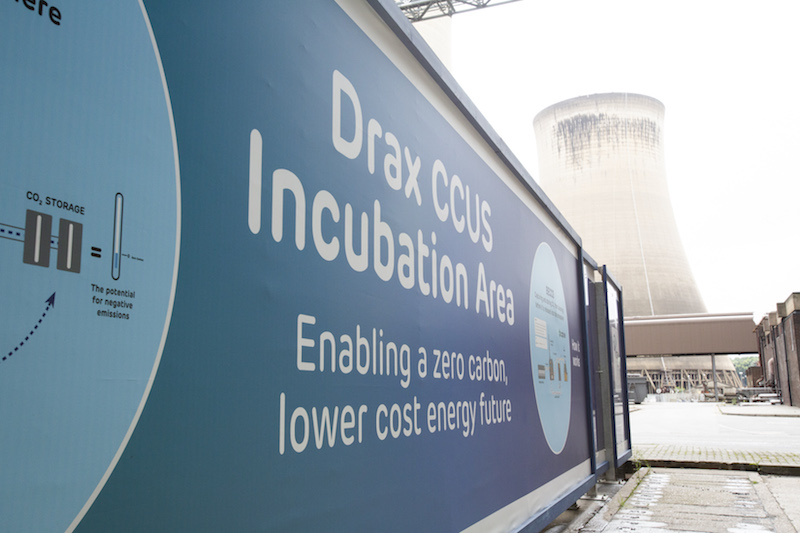
A major British power plant, Drax, has pledged to become carbon negative by 2030.
The plant, located in North Yorkshire, used to run exclusively on coal. It now burns a large range of biomass, mostly wood pellets, sunflower pellets, olive and peanut shell husk. In the first half of 2019, over 90% of the power produced by Drax Power Station was renewable.
Earlier this year, the plant launched a scheme to capture and store carbon dioxide emissions from biomas burners — Bio Energy with Carbon Capture and Storage (BECCS). The plant now captures a tonne of carbon each day.
What is biomass energy? Biomass energy refers to generating energy by burning wood, plants, and other organic materials. The reason we consider biomass renewable energy is because we can replace the plants or organic materials.
Drax said in a news release that the ambition to become carbon negative by 2030 “will depend on an effective negative emissions policy and investment framework for new technologies like bioenergy with carbon capture and storage (BECCS).”
“Sustainable biomass is an important part of the UK’s long-term energy mix. Combining this renewable fuel with carbon capture and storage technology on Drax’s biomass generating units at its power station in North Yorkshire, England, means the Group’s operations could capture 16 million tonnes of CO2 a year or more – a significant proportion of the UK’s target,” the company said.
The company plans on closing its remaining two coal generating units at Drax Power Station by 2025.
Drax CEO Will Gardiner said:
“Drax’s ambition is to be carbon negative by 2030. Having pioneered the use of sustainable biomass, Drax now produces 12% of the UK’s renewable electricity. With the right negative emissions policy, we can do much more, removing millions of tonnes of emissions from the atmosphere each year.
“The UK Government is working on a policy and investment framework to encourage negative emissions technologies, which will enable the UK to be home to the world’s first carbon negative company.
“This is not just critical to beating the climate crisis, but also to enabling a just transition, protecting jobs and creating new opportunities for clean growth – delivering for the economy as well as for the environment.”
